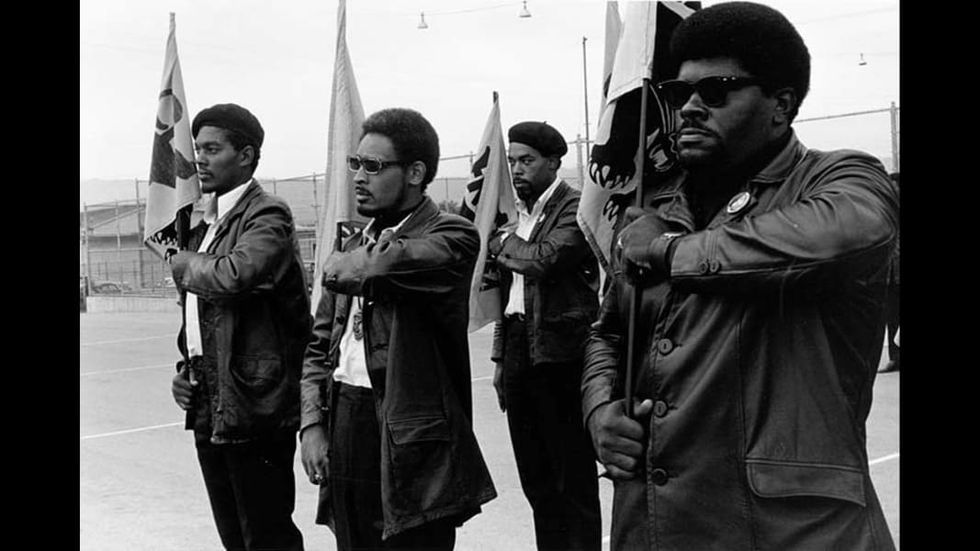What does it mean to be pro-black? Although there is no established, universal definition, the idea is to combat racial oppression through economic, cultural, and social liberation. To be pro-black is to advocate for and support black businesses, leadership, and Afrocentric ways of being.
Historically, pro-black movements were not anti-white but rather focused on achieving liberation through black unity and comradery. Blacks served as a support system for each other as opposed to relying on the same systems that were responsible for their oppression. For example, the Black Panther Party, a black nationalist group that sought to promote black power by combatting unjust judicial and educational systems, believed in the "right to self-determination that is inherent in all nations, including the Black community of the United States" (Harris, 411). Thus, pro-black organizations such as the Panthers sought to restore justice through self-reliance.
To be pro-black is to call for collective action among blacks to counter racism in economic and political systems. The idea that pro-black equates to anti-white not only is assumptive in and of itself but fails to understand the movement's purpose as well as meaning. One simply cannot further their place in society if they continuously depend on ineffective and detrimental resources. This promotes the opposite: stagnancy, which defeats the movement's purpose.
Another point that highlights the fallacy in the claim that to be pro-black is to be anti-white is the historical collaboration with diverse ethnic groups, including those that were white. For example, The Black Panther Party built alliances with the Young Patriots and Young Lords Organization to address similar issues that these groups had also faced in their communities. Again, the central question behind these groups' motives was how can my community support itself?
Hence, to be pro-black is to seek independence and freedom from one's respective group. Allowing for self-reliance and black leadership is crucial to complete political, economic, and social liberation. If a system continues to fail you, wouldn't you also take matters into your own hands?
Works Cited
Harris, Jessica C. "Revolutionary Black Nationalism: The Black Panther Party." The Journal of Negro History, vol. 86, no. 3, 2001, pp. 409–421. JSTOR, www.jstor.org/stable/1562458. Accessed 13 Aug. 2020.
"THE FIRST RAINBOW COALITION." pbs.org, 28 Jan. 2020, www.pbs.org/independentlens/videos/the-first-rainb....
Williams, Jakobi. From the Bullet to the Ballot: The Illinois Chapter of the Black Panther Party and Racial Coalition Politics in Chicago. UNC P Books, 2013.














